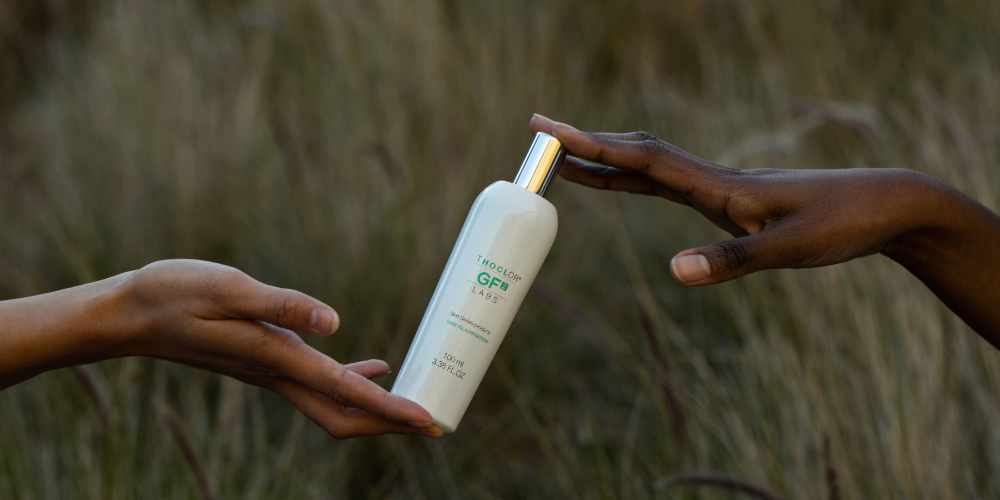We've all heard of the gut microbiome and the role it plays in our health. But did you know there is a similar diverse ecosystem present on your skin? This ecosystem is called the skin microbiome – a community of friendly microbes naturally living on your skin essential for keeping it healthy and balanced. These microbes exist to protect against disease and inflammation, and if their living conditions remain balanced, they'll help maintain beautiful, healthy skin. Let's take a deeper look into how you can make that happen.
WHY DOES A HEALTHY SKIN MICROBIOME MATTER?
The skin is the body's largest organ and serves as a barrier to our external environment. Our skin is our first line of defence against injury or disease, but it's the skin's microbiome that catches all the nasties. It plays a considerable role in wound healing, keeping inflammation in check, fighting off environmental toxins and even helping to prevent certain cancers. A healthy skin microbiome is effective against harmful bacteria. Your sebum (the skin's lubricant) is naturally antimicrobial, so when your skin microbiome is healthy, it works with your immune system to respond to its needs. In the same way, your gut health is responsible for your overall health.
HOW IS THE MICROBIOME ADVERSELY AFFECTED?
Modern life is the enemy of a healthy microbiome. Our skin microbiome can't do its job correctly anymore because we live in a germ-phobic world of antibacterial soaps, overuse of antibiotics, preservatives, and harsh chemicals. As we try to protect ourselves from germs, we kill the good with the bad – stripping our skin of all the good essential bacteria, viruses and fungi that make up the microbiome.
HOW CAN YOU PROTECT YOUR SKIN MICROBIOME?
We recommend using products that support your skin's microbiome, like our GF2 Skin Rejuvenation or GF2 Skin Therapy for Him. Formulated with our clinically tested hypochlorous acid (HOCl), it maintains skin's equilibrium by:
- Reducing inflammation, preventing certain bacteria from taking advantage of increased inflammation (like C. acnes).
- Reducing excessive sebum production, making the sebaceous glands less attractive for the Malassezia yeast.
- Maintaining the skin's barrier at the correct acidic pH.
Most importantly, it works as a smart disinfectant – removing all 'bad' microbes or pathogens (bacteria, yeast and viruses) whilst ignoring good microbes, helping to prevent an overrun of undesirable microorganisms.

5 ways to care for your skin microbiome
Many things affect your skin's microbiota, from your sex, age, and ethnicity to environmental factors (humidity, UV exposure or temperature) and behavioural factors (like cosmetic and soap use). Some things will be out of your control, but here are our five tips for protecting these delicate communities of skin flora:
- Guard your skin pH closely: as we mentioned before, your skin's microorganisms like an acidic environment, so it's best to keep the skin's acidity level between 5- 5.5. Below that, it is too acidic; above that, it's too alkaline. If your skin's pH is incorrect, it damages its barrier and the microorganisms living on it. Read our tips for choosing the right cleanser.
- Be gentle when you clean your skin: skin bacteria are happiest at your skin temperature (25°C), so try to avoid hot water. Refrain scrubbing skin or rubbing it after cleansing as this could cause micro-abrasions, giving pathogens a foothold to disrupt your skin's balance.
- Eat for a healthier gut: the same rules we apply to our gut – think probiotics – also apply to our skin. Live bacteria cultures are measured in colony-forming units (CFUs), and health experts recommend consuming approximately 1 billion to 10 billion CFUs per day. You can take supplements or eat probiotic-rich fermented foods like yoghurt, kefir, kombucha, sauerkraut, pickles and miso.
- Don't forget your prebiotics: prebiotics are found in high-fibre foods, which nourish the good bacteria and help them grow. These include asparagus, Jerusalem artichokes, garlic, oats, bananas and soybeans.
- Don't stress out your skin: what is good for your body is good for your skin. Similarly, this applies to the wrong things too. Try to avoid stress and harmful lifestyle factors like pollution, nicotine, and high alcohol consumption for a healthier skin microbiome
Want to understand more about your skin’s biodiversity? Read about this fascinating and delicate ecosystem here.